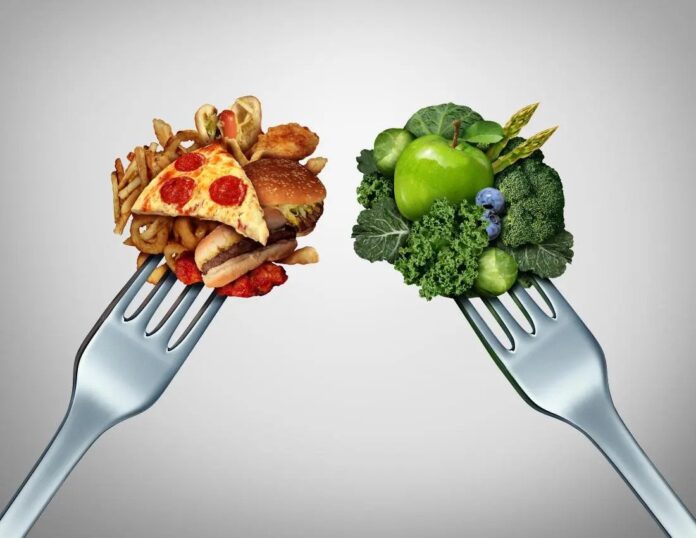Day by day, confusing opinions are raised regarding “optimal” meal frequency.
Several nutritionists say fat cutting starts when you eat breakfast, while metabolism improves when you take around 5-to-6 mini meals every day.
Do You Necessarily Need To Eat Breakfast?
Have you heard that “Breakfast is the most necessary meal”?
Aside from the fact that breakfast is important when you eat it, it kick-starts metabolism and aids in losing weight.
Inspectional researchers constantly declare that people who skip breakfast tend to be more obese than those who do not (1).
However, this observational data failed to show that breakfast is linked with weight reduction, but it reflected that consuming breakfast has a relationship with a reduced risk of obesity.
The reason behind this may be that those who shun breakfast are not mindful of their health, they are always in the habit of taking junk in the morning, and then they go for a correct meal during lunch.
Despite that, we all know the benefit of breakfast. Those who take cognizance of their health eat it the most.
It is proven that breakfast has no physiological advantage. It does not kick-start metabolism, and nothing makes breakfast especially needed.
Fact: For those who feel the need to eat breakfast due to hungriness, they must do.
Those who do not see any need can decide not to eat breakfast. However, they should deem it fit to consume healthy food for the whole day.
Does Persistent Eating Raise Metabolism?
The belief that when one eats frequently but lesser meals results in increased metabolism is not scientifically verifiable.
What is obtainable is the thermic effect that results from food. This occurs when metabolism is increased due to digestion.
Nonetheless, the overall food taken determines the amount of energy used up during digestion.
The same thermic action is noticed when one eats three meals containing 800 units of energy and the time that one consumes six meals containing 400 units of energy.
By mere looking, there is no distinction.
Different studies have finalized that there is no noticeable difference in the rate of metabolism and the overall quantity of fat reduced in the body when you take lesser larger meals and several lesser meals (2, 3).
Does Frequent Eating Balance Blood Sugar and Lower Appetites?
People often say frequent eating balances blood sugar in the body. This is a very popular discussion but has no scientific proof.
It is a myth that consuming large meals results in quick increases and decreases in blood sugar and that consuming regularly but lesser meals stabilizes blood sugar for the whole day.
According to research, individuals who consume larger but fewer meals are said to have no reduced glucose in their blood (4).
They may experience bigger “points” in blood sugar. However, the total level is, to a large extent, very low.
This is noteworthy for individuals having blood sugar problems because increased blood sugar levels pose health dangers.
When you eat less frequently, research indicated that it lowers the craving for food and raises satisfaction compared to consuming large portions continuously (5).
Risk Of Having Colon Cancer Increases With Frequent Meals
Researchers say the fourth most known cause of cancer death, colon cancer, is associated with frequent meals.
When you take four meals in a day, the risk of colon cancer is increased by 90% compared to two meals (6, 7).
This study does not have backings. However, we must mention it.
Meal Skipping Is Beneficial
In nutrition, it is much discussed that “recurrent fasting” is good for our health.
The known fact is that this method keeps one completely starved, reducing your body’s muscle mass. This is not true.
Findings on temporary fasting indicated that the rate of metabolism is raised at the start of this plan. However, it goes down 2-to-3 days after (8, 9, 10).
According to research carried out on men and animals, Recurrent fasting is beneficial.
It reduces insulin levels, increases insulin sensitivity, and reduces glucose levels in the body (11).
Research also says recurrent fasting results in autophagy, a process by which cells clean up waste products, impacting diseases and ageing (12).
Note
You have understood that frequent eating myths are not true.
It is not proven that there is any benefit to frequent consumption.
Frequent eating has no relationship with increased blood glucose level and metabolism.
In this wise, we advise you use this timing for food consumption…
1. Eat when you are hungry
2. Stop Eating When Satisfied.
3. Repeat indeterminately.











